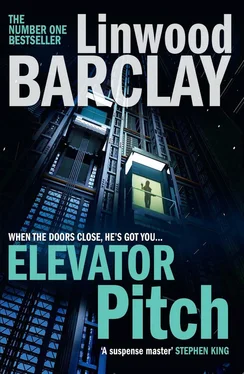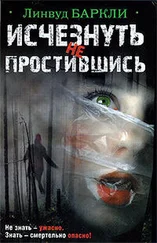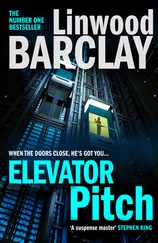“But there’s a lot of crossover in beliefs between those groups and the Flyovers.”
“Some, perhaps,” he acknowledged. “But that’s very true on the left, as well. We haven’t held all liberals to account for the actions of the Black Panthers or the Symbionese Liberation Army or, more recently, groups like Antifa.”
“Yes, but—”
“What the Flyovers is seeking to address is the current cultural divide, not government interference in our lives. Our goal is an attitude change. We want to... educate the Americans living along the coasts, the folks who seem to be unaware that there is another America. We’re more than a caricature, more than a bunch of NASCAR-loving, ribeating, beer-swilling rubes. Not that being a NASCAR-loving, ribeating beer drinker is anything to be ashamed of.” He managed a rueful smile. “That sounds like a great afternoon to me. Anyway, the coast is something of a metaphor. There are people throughout the country who hold the views we seek to challenge. You can find them right here in New York, I would imagine.”
“But isn’t that exactly what you have reduced the so-called coasters to? A cliché? Sushi-eating, latte-drinking, gluten-avoiding, Prius-driving elites?”
Clement shook his head. “Not at all. As I said, we’re just trying to educate.”
“By blowing things up.”
Clement’s cheeks flushed. “No. That Greatest Generation you’ve heard so much about? You’ll find it in the heart of the country. And you’ll find their sons and daughters and grandsons and granddaughters there, too. But some of this country’s most prominent politicians seem to have forgotten that. Only a couple of years ago, that woman who nearly became president, who even won the popular vote, said, and I quote, ‘I won the places that are optimistic, diverse, dynamic, moving forward.’” He sneered. “You know, coastal places. What an insult to the rest of the country.”
“You have to admit that many of the people who swear allegiance to the Flyovers organization—”
“That’s laying it on a bit heavy. We hardly have a pledge of allegiance.”
“Many of your followers, your adherents, those that speak their mind on your comments page, have advocated the kinds of terrorist acts we’ve seen lately.”
“You know, Anjelica, many urbanites believe the only amendment we care about is the second one. Well, nothing could be further from the truth. We believe, as all good Americans do, in the First Amendment. Freedom of speech. I may not like what some of these people have to say, but I would defend their right to say it. Just as I defend your right to speak to me in condescending and belittling terms.”
The host was unfazed. “Some of the things your followers say constitute hate speech.”
Clement frowned. “What is hate speech, exactly? It’s hate speech when you don’t like something I’ve said. But when you attack me for what I said, can’t your words also be defined as hateful?” He leaned in again. “What we need to do is find common ground. You speak your mind and I’ll speak mine, and that way we’ll find a way to meet in the middle. Think of all the things that we have in common. We want good jobs, we want the best for our families, we want a secure future.”
“You make yourself sound like a peacemaker when the FBI and Homeland Security have suggested the exact opposite. Many of your members also belong to white supremacist, white nationalist organizations. Some are members of the KKK.”
Clement shrugged. “And I can find you plenty of people of color who share their sentiments when it comes to coastal folks looking down their noses at us. That’s what I mean about meeting in the middle, which is an apt metaphor when you’re talking about the middle of the country. We’ve got people talking to each other who otherwise might never do so. We want to bring people together, to start a dialogue. We won’t get anywhere throwing insults at each other.”
The interviewer grinned slyly. “If you can take a mild criticism here, Mr. Clement, wouldn’t it be more accurate to call your group the Flown Overs , since that’s who you are. It’s the coastal folks who are flying over you.”
Clement gave her a withering look. “And there you have it in a single question. The contempt. The ‘we’re so much smarter than you’ comeback.”
Briscoe suddenly looked regretful, aware she had gone too far. She touched her ear, an indication she was getting a message from the control room. “Mr. Clement, we’ve run a bit over here, but I wanted to thank you for agreeing to come in and speak to us.”
He said nothing.
“I do have one last question.”
“Of course.”
“Given the way your organization feels about coastal cities and the people who live there, what are you doing in New York?”
“My wife and I are celebrating our anniversary. Or we were, until you dragged me in here.” He offered up a self-deprecating laugh and a smile. “The fact is,” he said, “I love New York.”
“How dare she say those things to you,” Estelle Clement said when her husband returned to the TV studio’s green room, where guests waited for their turn to go on air. There was a monitor in the room, and she had watched the segment. She lowered her voice and said, “What a bitch.”
Clement scowled. “The way she talked to me,” he said, his voice trailing off as he grabbed her by the arm and steered her into the hallway.
“You’re hurting me,” she said.
He eased his grip but did not let go of her as they headed for the lobby.
“You should sue,” Estelle said. “You could sue her for what she said.”
The studio was on the fourth floor of a building on Columbus Circle. There were several people waiting at the bank of elevators by the reception desk. Clement said, “Let’s take the stairs.”
“Do we have—”
“I just want to get out of here as fast as I can,” he said, already leading her toward a door with an Exit sign over it. Estelle, sensing his anger, did not object.
When they came out onto the street, Clement stopped for a moment to compose himself.
“Did you hear what I said up there?” Estelle asked. “You should sue her and the network for—”
“No,” he said firmly. “It’s more than just one arrogant TV host or one network. It’s a bigger battle than that.”
Estelle placed a hand on his arm. “What do you want to do? Do you want to go home? We can, you know. If this has ruined everything, we don’t have to stay. I can see if I can get our money back on the tickets.”
“Tickets?” he said.
“You remember we have tickets for that show tonight. But it’s okay, we can—”
“No, we’re going.” He lifted his head and gave it a small shake, as though trying to rid himself of the anger he felt. Then he forced his mouth into a smile. “We’re not going let them stop us from having a good time.”
Estelle smiled. “You’re sure?”
Clement nodded. “I’d forgotten about the show. What are we seeing?”
“It’s that one with all the dancing,” Estelle said. “I know that doesn’t exactly narrow it down. You’re probably going to hate it, anyway.”
“All those nancy boys prancing about the stage? I wouldn’t miss it for the world. In the meantime, I’m going to take you out for a fabulous lunch. How does the Capital Grille sound?”
“Sure,” his wife said.
“I’ll get us a cab,” he said. “You stay here.”
He stepped off the sidewalk and walked out between two parked cars. He came up around the side of one of them as he waved his hand in the air.
Behind him, he heard a window power down.
“Hey,” someone said.
Eugene Clement did not turn around when he heard Bucky’s voice. Looking up the street, Clement said, “Still on track?”
Читать дальше
Конец ознакомительного отрывка
Купить книгу








![Линвуд Баркли - Последний выстрел [litres]](/books/412435/linvud-barkli-poslednij-vystrel-litres-thumb.webp)



